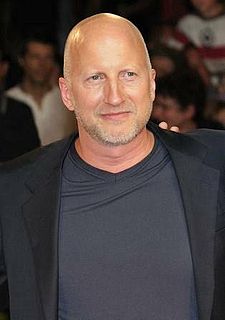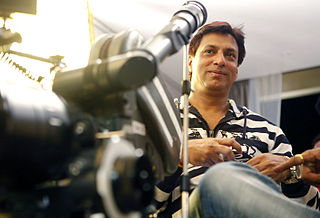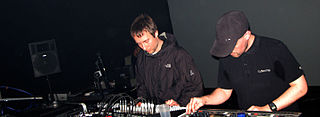A Quote by Richard Linklater
I don't think all films should necessarily look like they do on digital video. I think it cheats the audience, at some point. If you try to make an epic and you shoot it digitally, that doesn't make much sense. I think there's a certain kind of film that could be a "digital film." But it shouldn't be interchangeable with other films. It should be something more than just a capture medium. It should be a different form altogether, something new.
Related Quotes
Various studios are still shooting on film with digital grain and the DI negatives, it's not ideal. We should really be all film or all digital. But that being said, the old way of graining in the camera, now you can make changes like a painter. It's dangerous because you can ruin the film, you can over-fiddle. We've all seen films and gone 'what the hell is that?'
I think distribution has become a lot harder. With the whole explosion of digital video, there's just a lot more people making films. Distributors have a lot more choice. I do think there's an audience out there for small films. It's obvious to me what the studios do: they've co-opted independent film. They all have their independent arm. They can afford to crush the competition.
In an old model, the way a film would imprint itself on the public's consciousness is to get a theatrical run. But now there are more documentaries and more films in general being released than ever before. There are weeks when the New York Times is reviewing 15 films, so it's harder to leave an impression on the public. A lot of these films are seeing their financial future on digital platforms. Because viewers aren't hearing as much about films in theatrical release, I think the festival circuit is going to have increasing importance for the life of a film.
When filmmakers are kept from making films, there's a lot of different reasons why. Sometimes you work on a film and cast it and do all the work and can be just a month away from shooting, and all of a sudden, the whole thing goes up in smoke. But I do think the advent of a digital revolution is going to provide people with opportunities to make films that they never would have had before. I think you can do some pretty credible stuff now with very, very little money. Which I think is great for young filmmakers.
On every film I do, whenever there are other girls my age, I think it's definitely up to me to set the pace. That's because I've had a lot of experience and I think there's always a certain amount of professionalism that should be maintained. If I was catty or whatever, it would just make the whole shoot unpleasant. And what's the point of that?
I forget who said it, but there's that saying: 'Films are never finished, they're abandoned.' There's always something you think you can improve on, but I don't think you should try. George Lucas started doing it, and didn't stop. You can tinker indefinitely, and it doesn't necessarily make it better.
... I don't think anybody should avoid mistakes. If it is within their nature to make certain mistakes, I think they should make them, make the mistakes and find out what the cost of the mistake is, rather than to constantly keep avoiding it, and never really knowing exactly what the experience of it is, what the cost of it is, you know, and all the other facets of the mistake. I don't think that mistakes are that bad. I think that they should try and not do destructive things, but I don't think that a mistake is that serious a thing that one should be told what to do to avoid it.
I think movies in general should have more respect for the audience than they do. Too many films are afraid to confuse people, so all the information is given to them right away, and there's nothing left for the film to do. It ruins many stories, because everything becomes obvious and predictable. I want my films to engage people more and make them more actively involved in the story.




































